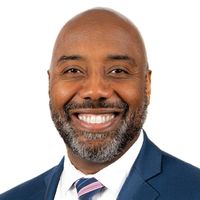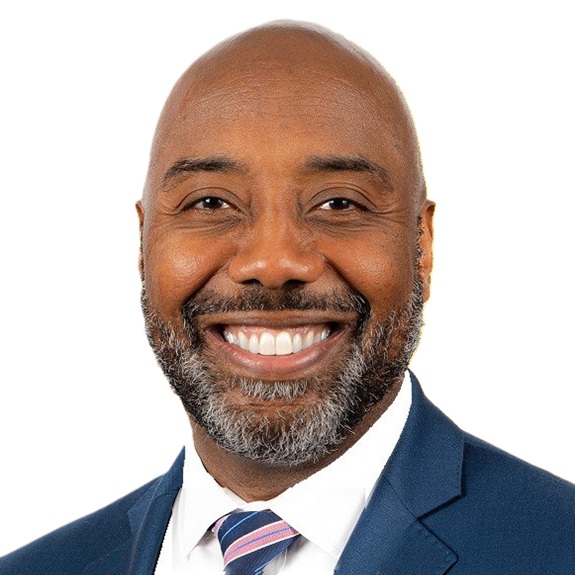10 Key Things to Think About in Your New Year Financial Planning
2023 is set to be a tough year economically. Here’s how to get your financial and life plans in the best possible shape.


Profit and prosper with the best of Kiplinger's advice on investing, taxes, retirement, personal finance and much more. Delivered daily. Enter your email in the box and click Sign Me Up.
You are now subscribed
Your newsletter sign-up was successful
Want to add more newsletters?

Delivered daily
Kiplinger Today
Profit and prosper with the best of Kiplinger's advice on investing, taxes, retirement, personal finance and much more delivered daily. Smart money moves start here.

Sent five days a week
Kiplinger A Step Ahead
Get practical help to make better financial decisions in your everyday life, from spending to savings on top deals.

Delivered daily
Kiplinger Closing Bell
Get today's biggest financial and investing headlines delivered to your inbox every day the U.S. stock market is open.

Sent twice a week
Kiplinger Adviser Intel
Financial pros across the country share best practices and fresh tactics to preserve and grow your wealth.

Delivered weekly
Kiplinger Tax Tips
Trim your federal and state tax bills with practical tax-planning and tax-cutting strategies.

Sent twice a week
Kiplinger Retirement Tips
Your twice-a-week guide to planning and enjoying a financially secure and richly rewarding retirement

Sent bimonthly.
Kiplinger Adviser Angle
Insights for advisers, wealth managers and other financial professionals.

Sent twice a week
Kiplinger Investing Weekly
Your twice-a-week roundup of promising stocks, funds, companies and industries you should consider, ones you should avoid, and why.

Sent weekly for six weeks
Kiplinger Invest for Retirement
Your step-by-step six-part series on how to invest for retirement, from devising a successful strategy to exactly which investments to choose.
There's no escaping the fact 2023 is going to be challenging, but focusing on financial planning for the new year could help.
From soaring inflation and rising interest rates to the ongoing effects of the pandemic and war in Ukraine, we can expect the economic landscape to remain predictably unpredictable for the foreseeable future.
Yet, while there’s not much we can do to influence the global macroeconomic and geopolitical picture, there are plenty of ways to ensure our own finances are robust enough to deal with whatever the next 12 months bring.
From just $107.88 $24.99 for Kiplinger Personal Finance
Become a smarter, better informed investor. Subscribe from just $107.88 $24.99, plus get up to 4 Special Issues

Sign up for Kiplinger’s Free Newsletters
Profit and prosper with the best of expert advice on investing, taxes, retirement, personal finance and more - straight to your e-mail.
Profit and prosper with the best of expert advice - straight to your e-mail.
From cold hard math to close relationships, here are 10 things to consider in your financial plans as we head toward the new year:
1. Audit Your Beneficiaries.
Now's a good time to go through all your savings accounts, insurance and retirement plans to make sure your designated beneficiary – i.e., the person or people the money passes to in the event of your death – for each one is still who you want it to be.
2. Take Advantage of Higher Limits in Your Withholdings.
Increasing your withholding percentage by 9.76% will allow you to continue to max out your 401(k) savings opportunity in 2023. For example, if you earned $250,000 in 2022 and maxed out your contribution as a 49-year-old or younger, you would have a withholding percentage of 8.2% (saving $20,500 for the year). To take full advantage of the increased limit of $22,500, plan to increase that from 8.2% to 9% in 2023 (a 9.76% increase).
Meanwhile, if you’re 50 or over, the appropriate percentage increase to your annual withholding rate is 11.1% to take full advantage of the new $30,000 limit. If you didn’t max out your 2022 contribution, you should also consider increasing whatever your withholding level was by 10% in January or by 2.5% per quarter so it reaches 10% by the end of 2023.
3. Make the Most of your HSA.
A health savings account (HSA) lets you set aside money on a pre-tax basis to pay for any qualified medical expenses you incur. It’s also the last triple-tax-exempt investment vehicle available. Make sure you're taking advantage of it.
4. Decide How to Use Your Social Security Wage Base “Pay Rise.”
In 2023, Social Security will take 6.2% of your salary up until you've earned $160,200. So, if you earn $200,000, 6.2% will be deducted from your monthly paycheck until you hit that $160,200 base (if you earn $200,000 a year, your monthly salary is $16,667, so this will take approximately 10 months).
After that, Social Security stops coming out, essentially giving you an automatic “pay rise” of $1,033 a month in November and December (6.2% of your monthly salary of $16,667).
Rather than just let that money disappear into your daily spending, think about intentionally investing it in savings. The more you make, the sooner and larger this pay rise will be. Doing this over the course of a whole career, it could become a considerable nest egg!
5. Leverage Your RMD.
The government’s required minimum distribution (RMD) regulations require you to begin drawing down on any IRAs or 401(k) savings the year you turn 72. These payments are subject to tax.
So, if you already have enough money to fund your lifestyle, why not plan to use your RMD to invest directly in a charity instead? You’ll be supporting a cause you’re passionate about without paying tax on the money.
6. Invest in Self-Care.
Looking after our physical and mental health has never been more important, so put time and money aside at the beginning of the year to fund self-care. In particular, try to plan at least one long break (a week or two) as well as three shorter ones of, say, four to five days. You can use that time to recharge your engine. This could even be a smart way to use the automatic “pay rise” we talked about in tip No. 4.
7. Review Your Parents' Plans.
It's tough to think about, but there may come a time when your parents can no longer take care of themselves. It's therefore a good idea to talk to them now about their financial portfolio and how they want their affairs to be managed in the future. That way, there’s less likely to be any unpleasant surprises that impact your own plans further down the line.
8. Get Your Kids Involved.
In the same way you need to understand your parents' plans, it's a good idea to ensure your children understand yours – if they're old enough to take it all in, of course! Have an open conversation with them about your financial situation as well as the values, causes and ethics you believe in and would like to see them follow after you’re gone.
9. Decide What Relationships to Focus On.
Most of us wish we had more time to spend with friends and family but find the busyness of modern life gets in the way. Now is therefore the perfect time to reflect on the people you managed to see enough of in 2022 — and those you didn’t. You can then plan how you're going to invest your time and energy into nurturing the relationships that are important to you next year.
10. Turbocharge Your Savings if You're a Business Owner.
One very effective way to stay ahead of inflation is to save more. If you're a business owner and have sufficient cash flow available, you should consider investing in a cash balance plan.
This would allow you to save as much as $343,000 in addition to your 401(k) and profit-sharing contribution. Remember, contributions to a cash balance plan, properly structured, are fully tax deductible, making it a great way to accelerate your savings and build your retirement nest egg!
Profit and prosper with the best of Kiplinger's advice on investing, taxes, retirement, personal finance and much more. Delivered daily. Enter your email in the box and click Sign Me Up.

Stephen Dunbar, Executive Vice President of Equitable Advisors’ Georgia, Alabama, Gulf Coast Branch, has built a thriving financial services practice where he empowers others to make informed financial decisions and take charge of their future. Dunbar oversees a territory that includes Georgia, Alabama and Florida. He is also committed to the growth and success of more than 70 financial advisers. He is passionate about helping people align their finances with their values, improve financial decision-making and decrease financial stress to build the legacy they want for future generations.
-
 The New Reality for Entertainment
The New Reality for EntertainmentThe Kiplinger Letter The entertainment industry is shifting as movie and TV companies face fierce competition, fight for attention and cope with artificial intelligence.
-
 Stocks Sink With Alphabet, Bitcoin: Stock Market Today
Stocks Sink With Alphabet, Bitcoin: Stock Market TodayA dismal round of jobs data did little to lift sentiment on Thursday.
-
 Betting on Super Bowl 2026? New IRS Tax Changes Could Cost You
Betting on Super Bowl 2026? New IRS Tax Changes Could Cost YouTaxable Income When Super Bowl LX hype fades, some fans may be surprised to learn that sports betting tax rules have shifted.
-
 The 4 Estate Planning Documents Every High-Net-Worth Family Needs (Not Just a Will)
The 4 Estate Planning Documents Every High-Net-Worth Family Needs (Not Just a Will)The key to successful estate planning for HNW families isn't just drafting these four documents, but ensuring they're current and immediately accessible.
-
 Love and Legacy: What Couples Rarely Talk About (But Should)
Love and Legacy: What Couples Rarely Talk About (But Should)Couples who talk openly about finances, including estate planning, are more likely to head into retirement joyfully. How can you get the conversation going?
-
 How to Get the Fair Value for Your Shares When You Are in the Minority Vote on a Sale of Substantially All Corporate Assets
How to Get the Fair Value for Your Shares When You Are in the Minority Vote on a Sale of Substantially All Corporate AssetsWhen a sale of substantially all corporate assets is approved by majority vote, shareholders on the losing side of the vote should understand their rights.
-
 How to Add a Pet Trust to Your Estate Plan: Don't Leave Your Best Friend to Chance
How to Add a Pet Trust to Your Estate Plan: Don't Leave Your Best Friend to ChanceAdding a pet trust to your estate plan can ensure your pets are properly looked after when you're no longer able to care for them. This is how to go about it.
-
 Want to Avoid Leaving Chaos in Your Wake? Don't Leave Behind an Outdated Estate Plan
Want to Avoid Leaving Chaos in Your Wake? Don't Leave Behind an Outdated Estate PlanAn outdated or incomplete estate plan could cause confusion for those handling your affairs at a difficult time. This guide highlights what to update and when.
-
 I'm a Financial Adviser: This Is Why I Became an Advocate for Fee-Only Financial Advice
I'm a Financial Adviser: This Is Why I Became an Advocate for Fee-Only Financial AdviceCan financial advisers who earn commissions on product sales give clients the best advice? For one professional, changing track was the clear choice.
-
 I Met With 100-Plus Advisers to Develop This Road Map for Adopting AI
I Met With 100-Plus Advisers to Develop This Road Map for Adopting AIFor financial advisers eager to embrace AI but unsure where to start, this road map will help you integrate the right tools and safeguards into your work.
-
 The Referral Revolution: How to Grow Your Business With Trust
The Referral Revolution: How to Grow Your Business With TrustYou can attract ideal clients by focusing on value and leveraging your current relationships to create a referral-based practice.